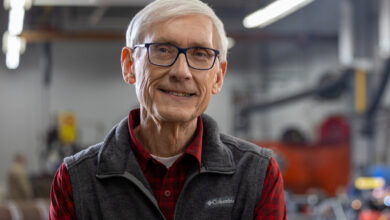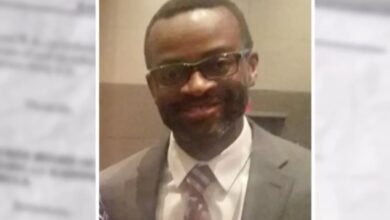
From the Ground Up
Since 2004, the Montrose Center has nurtured more than 452 new LGBTQ organizations.

The Montrose Center’s most-utilized service—helping local LGBTQ organizations develop and flourish—is also its least known, says Kennedy Loftin, chief development officer for the Center. Last year 49,238 people attended a total of 1,910 events sponsored by more than 100 organizations seeking to advocate, educate, and raise funds.
The Montrose Center has six major areas of service: counseling and addiction recovery, youth, seniors, HIV, women, and its “community center” program. That program now includes a nonprofit incubator to help organizations in three ways: free meeting and office space, discounted rental space for more established groups, and acting as the nonprofit “fiscal agent” for new groups seeking a 501(c)(3) non-profit tax status.
“The Center provided $26,000 worth of free meeting space to 76 organizations last year,” Loftin says. “There was a special focus on underserved communities of color and the transgender community.” Among those organizations are Black Transgender Leaders & Affirming Black Pastors, Gender Infinity, Impulse Group, Iftikhar, Mahogany Project, Men Inc., and Save Our Sisters United.
The Center also provided $87,000 in reduced rental fees, utilities, and free meeting rooms to eight organizations including Equality Texas, Houston GLBT Political Caucus, Living Mosaic Inclusive Church, Young Invincibles, and Pride Houston.
Organizations receiving fiscal agency and accounting services, fundraising support, and free meeting rooms included the HIV & Aging Coalition, Mayor Turner’s LGBTQ Advisory Board, the Normalcy Project, Lesbian Health Initiative, the oH Project, and Texas Queer Muslims.
Creating a Nonprofit Incubator
Loftin says the community-center program evolved organically over the years, and is the only program without a coordinator and dedicated staff. However, the recent award of a John Steven Kellett Foundation grant to the program will change that.
The grant will formally establish a non-profit incubator, to be named in honor of Kellett. “I researched John Kellett, and this is so in line with what he wanted to do—support smaller organizations [in a way] that will have exponential impact. More and more, the community is indicating what it needs,” Loftin notes.
The incubator is now in its pilot phase. The Kellett grant will allow the Center to conduct research and development, leading to a formal launch planned for next summer. The Center is identifying which services are needed by organizations, and what the new incubator can effectively provide. Upgraded signage and meeting rooms are already in the planning stages.
“There is a lot we don’t know, but we will provide resources to organizations that do know how to reach communities that we haven’t always reached,” Loftin says. “We become stronger as a community with these new organizations.”
The incubator is hoping to offer several additional services to new organizations, including assistance with establishing 501(c)(3) status, development consulting, board training, researching new grant opportunities, grant writing assistance, grant report tracking, media and marketing assistance, graphic design support, resources linkage, event ticketing services, volunteer assistance, and various training opportunities.
Keeping a Focus on the Mission
The incubator allows new organizations to start working right away, without worrying about finding money to pay for meeting or office space to meet and organize, or navigating the complex process of obtaining 501(c)(3) tax-exempt status.
To qualify, an organization must be aligned with the Montrose Center’s mission of serving their two target populations: the local LGBTQ community and people living with AIDS.
Some organizations have been in the incubator for several years now, such as the oH Project, which produces oral histories of the AIDS crisis. The project was self-sufficient, except for its lack of nonprofit tax status. After the incubator provided assistance in establishing nonprofit status, the Montrose Center was able to handle the group’s banking and accounting needs, including audits, receiving donor contributions, and sending out thank-you notes to each donor.
Loftin says that a few new organizations in the incubator may eventually be incorporated into the Montrose Center, but the general intent is for the organizations to become independent and separate. The incubator sees each new organization as having unique needs and their own timelines for success.
Loftin says he is actively hunting for an LGBTQ nonprofit incubator in another city to serve as a model, but he hasn’t found one yet. “There are lots of incubators in the environmental space, and they are very popular for technology companies. Twitter and Uber were built on them.” The Kellett incubator will probably be the first such program in the U.S. for hatching and nurturing new LGBTQ organizations.
Saving Our Sisters United
Transgender activist Atlantis Narcisse says she founded the Saving Our Sisters United organization in 2016 after realizing that her Facebook inbox was getting so many of the same questions about the process of transitioning. She put together a team of other like-minded transgender women of color to develop a safe space for helping trans women navigate their transition process.
“Society is still trying to understand the transgender issue,” says Narcisse. “When you add intersections of race and socio-economic status, it becomes even more difficult.”
Their first meetings were usually held in homes. After the organization was accepted into the incubator in 2018, the group was able to grow and offer a variety of services related to hormone replacement therapy, trans healthcare, name and gender-marker changes, and financial assistance. They have also organized wellness fairs, mixers, social debriefings, and panel discussions. “The Montrose Center took the financial burden off our shoulders,” Narcisse says.
With the financial burden lifted, Saving Our Sisters United can focus on their core issues. “We want to move people easily through the services so that their experience is one of affirmation, not trauma,” Narcisse says. “The Montrose Center has been a great source of comfort.”
The Normal Anomaly / “Outcry” Docu-Series
Ian Haddock started a blog called The Normal Anomaly in 2016 to show that “people on the intersection of black and gay are no different than their white queer counterparts or heterosexual blacks.” By 2018, Haddock wanted to do something more creative. He dreamed of producing a docu-series using the stories and dialogue of LGBTQ people of color, to reduce stigmas surrounding sexuality, race, HIV, and mental health.
Haddock quickly realized that in order to submit a filmmaking grant, he would need a fiscal agent to establish his nonprofit tax status. He reached out to several nonprofit organizations, but the efforts became mired in board meetings.
Then Haddock found a business card that he had once received from Loftin. Haddock contacted Loftin asking about fiscal agency, and within hours Haddock was sitting in Loftin’s office talking about his dream.
Both parties were excited at the possibilities. The Center’s board approved the agency request in October 2018. A memorandum of understanding was drawn up, stating what the Center would provide and what they would require from Normal Anomaly. “The incubator was absolutely life-changing,” Haddock says.
By November 2018, Haddock learned that his project had won an AIDS United grant, which provided seed money to show what could be done using raw footage. Haddon invited people to the Center to preview that video, and over 192 people attended.
With the awarding of two additional grants, Normal Anomaly has been able to put together a five-part documentary series focused on the following areas: mental-health trauma, HIV and the church, rape and substance abuse, transitioning and the church, and healing in the church.
Normal Anomaly is now working to convince an online streaming service to pick up the series. Haddon says “This all happened because the Center gave me a chance, and I am immensely grateful for that. The Center treats me like family. When I need help, it is no more than a phone call away.”
Haddon says the Center keeps him in the loop, takes him to other Center fundraisers, and helps him meet other people to use in his series. He is now working with other Center teams to learn how to build infrastructure, write grants, and apply for his own nonprofit status.
HIV & Aging Coalition
Bruce Turner first began an effort to establish a local organization dedicated to seniors living with HIV in 2013, after taking part in an HIV & Aging program at the Center that featured HIV-positive seniors from New York City. The program encouraged participants to begin a local organization. Turner was 64 at the time, and felt this was something that needed to be done.
“There was no program in Houston,” Turner says. “People who were aging needed connections to the organizations that were supposed to be helping us. Age hits from one side, and stigma from the other side. We wanted to educate fellow HIV-positive people about matters that could help them, like how to navigate through the Ryan White Act agencies and Medicare.
Turner says that after people turn 50, they become less willing to socialize. Age has slowed them to a degree, but they also don’t want to be “that person with HIV.” Isolation easily sets in.
“The Center has been very good to us,” Turner continues. “For a small group to obtain a tax-exempt status is a major obstacle. By using the Center as our fiscal agent, we have been able to focus our efforts on the purpose of the coalition instead of the extraneous things.”
The group sponsors a social hour on the first and third Mondays, and an educational program on the second Monday of each month. The Center provides free space for meetings and socials. The group’s holiday party has gone from 65 guests to 150 last year. At their 2017 holiday party following Hurricane Harvey, several guests came up to Turner and said that the dinner served that night was the first hot food they had eaten since the flooding.
Turner says that without the Center’s incubator, “the HIV & Aging program would not be what it is today.”
This article appears in the October 2019 edition of OutSmart magazine.











Comments